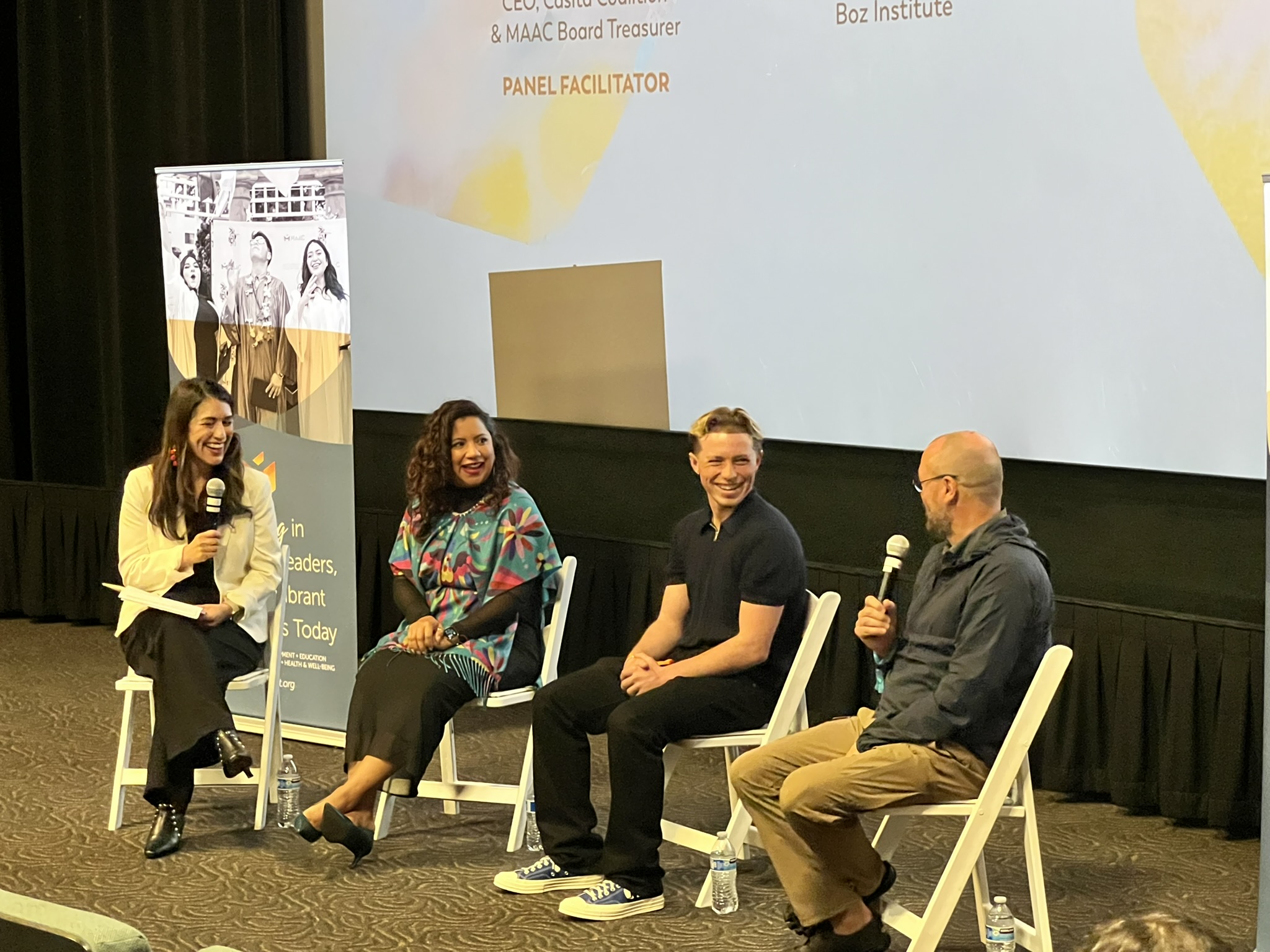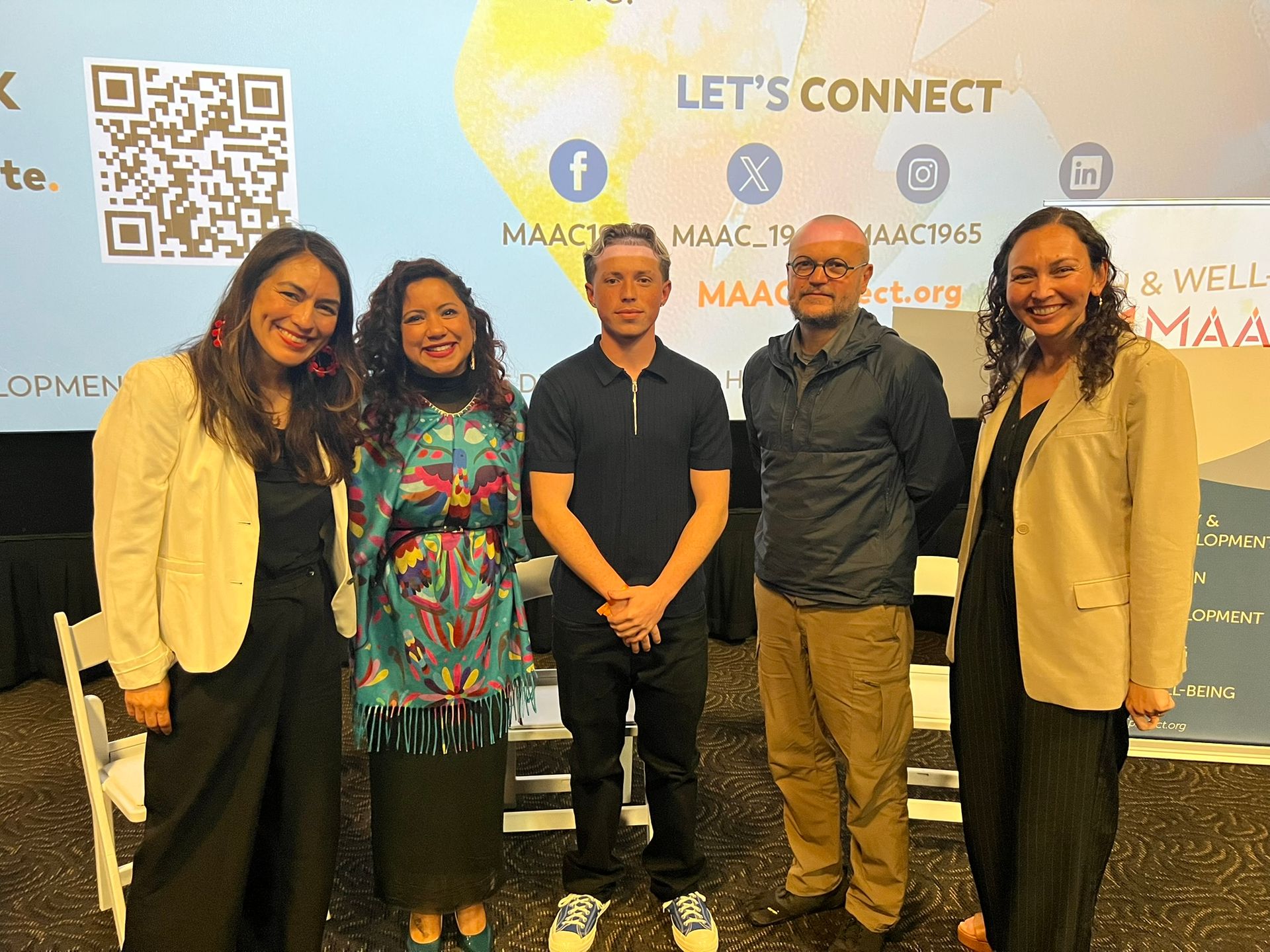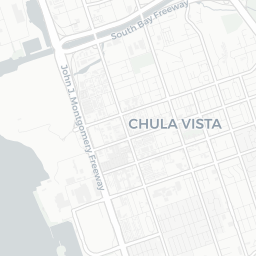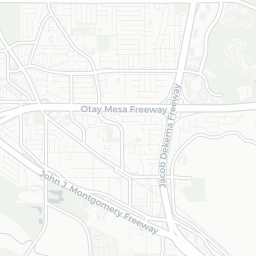From left to right: Noerena Limón (Board Member, MAAC), Liz Ramirez (CEO, The Chicano Federation), Jeremiah (Student, MAAC Community Charter School), Dr. Goran Bozinovic (President & CEO, Boz Institute), Susan Arias (Chief Growth Officer, MAAC).
Mariposas Negras: A Call to Climate Migration and Displacement
MAAC was proud to partner with the San Diego Latino Film Festival to present, Mariposas Negras, a documentary that sheds light on the devastating effects of climate migration. Following the screening, MAAC hosted a panel discussion facilitated by MAAC Board Member, Noerena Limón, featuring the CEO of the Chicano Federation, Liz Ramirez, the President & CEO of Boz Institute, Dr. Goran Bozinovic, and Jeremiah, a student from MAAC Community Charter School (MCCS). Their conversation touched on the harsh realities of displacement due to climate change, systemic failures in recognizing climate refugees, and the urgent need for collective action.
The Human Cost of Climate Devastation
Liz Ramirez opened the discussion by reflecting on the painful parallels between the film and real-life events in San Diego. She recounted the devastating floods that displaced families in Delta, one of Chicano Federation’s affordable housing complexes, many of whom were already refugees fleeing war, violence, and environmental collapse.
“They lost everything when they fled and left their home, and then they lost everything again during the floods,” Ramirez shared. “For some of us, we witnessed very heavy rain, but for these families, recovery is still ongoing.” Her words underscored the prolonged and often invisible struggles of climate-impacted communities, emphasizing the need for continued support long after the media coverage fades.
The Legal Gap: Climate Refugees Without Recognition
Dr. Goran Bozinovic addressed a critical issue highlighted in the film: the lack of legal recognition for climate refugees. While international asylum laws protect those fleeing political or racial persecution, climate migration remains a gray area.
“We are significantly behind in both understanding and responding to climate migration,” Dr. Bozinovic explained. “The data is clear and overwhelming, yet our legal and political systems lag in acknowledging and addressing this crisis.” He pointed out that systemic inaction is driven not by a lack of information but by a failure to prioritize long-term environmental justice over immediate political and economic concerns.
Environmental Injustice at the Border
Jeremiah, a student from MCCS, brought a local perspective to the conversation, discussing the environmental crisis in the Tijuana River Valley. His research, conducted with fellow students, revealed severe pollution affecting coastal communities on both sides of the border.
“People just walking near the beach are impacted, Navy SEALs training in the water get sick, small businesses shut down, it’s a really big issue,” he stated.
While attending the UnidosUS Changemakers Conference in Washington, D.C., Jeremiah and his classmates shared their findings with policymakers to advocate for urgent action. While progress has been slow, he remains hopeful that continued advocacy will bring meaningful change.

The Gendered Impact of Climate Disasters
A poignant moment in the discussion revolved around the film’s depiction of women and children as the most vulnerable to violence and exploitation during climate crises. Ramirez shared firsthand accounts of how women in San Diego’s flood-impacted communities faced mistreatment and intimidation from landlords, often due to their immigration status. She shared, “At Chicano Federation, we connected these women and families to legal and community resources to protect them.”
She also highlighted the resilience of women, sharing a story of a resident who turned her upstairs apartment into a communal kitchen for displaced families. “Women show up for each other time and time again. It’s our duty to do the same.”
A Global Crisis Requires a Global Response
Dr. Bozinovic expanded on the idea that climate injustice knows no borders. “The Tijuana River crisis is an international problem,” he noted. “Water and air don’t recognize political boundaries, yet we continue to treat these issues as localized rather than global.” He also emphasized the role of scientists in not just collecting data but also communicating it effectively to drive policy change.
“We need young people to think globally, develop empathy, and really understand that this is everyone’s problem,” he urged. “Hopefully with direct conversation, and more urgency, critical individuals will pay more attention to this.”
A Call to Action
The panel concluded with a sobering but hopeful message: the fight for climate justice requires all of us. From students advocating in Washington to community leaders providing on-the-ground support, every effort counts. Mariposas Negras served as a stark reminder of the human cost of climate change. It challenged us to move beyond awareness and into action—because for many, the future is already here.
At MAAC, we are committed to building resilient communities and empowering individuals to fight for environmental justice. Whether through our education initiatives, advocacy efforts, or direct support for impacted families, we stand with those affected by climate migration. Through programs like MAAC Community Charter School (MCCS), we equip young leaders with the tools to advocate for change. Our economic development initiatives support families in rebuilding their lives with access to job training, financial education, and small business resources.
Join us in making a difference, because a stronger, more just future begins with all of us.
























